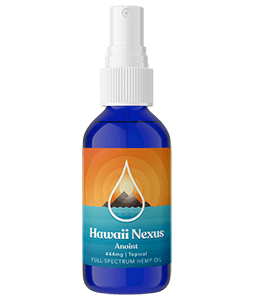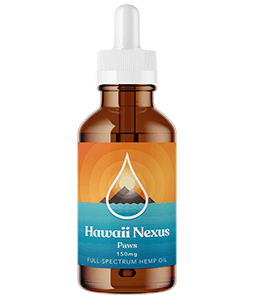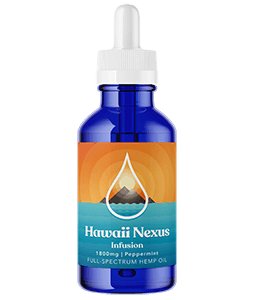What is CBD Oil?
Hemp extracts are extremely popular. If you haven’t jumped on the wellness movement yet, you might be wondering, “What is CBD oil?” Also known by its full name, cannabidiol is a naturally occurring phytochemical. Companies extract the chemicals from the hemp plant. In 2018, Congress passed the Farm Bill that legalized hemp cultivation, extraction, sales, and use of all compounds in the plant, including CBD.
CBD Oil is a Compound Found in Hemp
Cannabidiol is a phytocannabinoid found in hemp’s trichomes. These tiny hair-like resin glands contain the plant’s 545-known nutrient-rich compounds, including phytocannabinoids, terpenes, and flavonoids. The potent trichomes are located on the stalk, stems, leaves, and flowers. CBD is one of at least 120 cannabinoids found in hemp. Also known as phytocannabinoids or plant-based cannabinoids, they can interact with the endocannabinoid system.
Is Hemp the same as Marijuana?
Hemp and marijuana are from the same plant species, but they have a significant difference. Marijuana contains very little cannabidiol, less than 1% in most strains. Instead, it has high concentrations of THC, which makes it psychoactive, and federally illegal. Hemp is well-known for its CBD-dominant strains. Many CBD cultivars have up to 20% or more CBD. More importantly, hemp contains no more than 0.3% THC.
Why do People Use Cannabidiol?
Consumers choose to include CBD in their wellness routine for several reasons. Most enjoy using an all-natural product daily. Researchers and testimonials show cannabidiol may help users maintain normal stress levels, encourage muscle recovery after a challenging workout, and promote quality sleep.
CBD to Encourage Stress Relief
Stress is a normal part of life. Sometimes situations can increase anxiousness and send stress levels rising. There are several ways to get and keep stressors low, such as exercise, proper nutrition, and seven to nine hours of sleep nightly. CBD may help you relax your mind and body after a long day at work.
CBD to Promote Muscle Recovery
Many consumers workout before or after work, raising their heart rate and putting their muscles to the test. These sessions are great for cardiovascular health but can cause microtears in the muscles that require rest and recovery. Anyone who wants to get out there faster needs to follow a strict muscle recovery protocol to hit the weights again 24 hours.
Studies and consumer reports indicate cannabidiol might encourage faster muscle recovery. An excellent option is a topical rub. You can massage these muscle-soothing creams into sore areas. CBD tinctures, edibles, and capsules might promote a higher quality night’s rest to speed up the process.
Always include plenty of hydration, nutritious meals, and plenty of rest to help heal overworked muscles.
CBD to Support Healthy Sleeping Habits
Everyone has trouble sleeping sometimes. To reduce sleep issues, consumers should maintain a sleep routine that includes waking up and going to bed around the same time every night. A regular dose of CBD 30 to 60 minutes before it’s time to sleep might improve how quickly you fall asleep and its duration. The research doesn’t show CBD directly affects sleep patterns. Experts believe that the hemp compound promotes sleep by encouraging normal stress levels, improving mood, and helping with muscle recovery. When your mind and body are happy, it’s much easier to fall and stay asleep.
Cannabidiol & the Endocannabinoid System
The endocannabinoid system is a complex cell-signaling system in the body that helps maintain homeostasis or balance. Also known as the ECS, it plays a role in regulating major functions, including mood, appetite, pain, immunity, and fertility.
Everyone with a backbone has an ECS. The system is in the body of all mammals. It was discovered in 1992 by a team of Israeli scientists. Experts have been studying its role in health functions since.
The ECS consists of endogenous cannabinoids (internal), cannabinoid receptors, and enzymes. There are two primary cannabinoid receptors, CB 1 and CB 2. These are located throughout the body. The CB 1s are found primarily in the central nervous system, and the CB 2s stick to the immunity system.
CBD and the compounds in hemp are the only external compounds that can activate the cannabinoid receptors. Researchers believe cannabidiol may promote healthy endocannabinoid system function.
Side Effects & Medication Interactions
Nearly all substances you can ingest have the potential to produce some adverse reactions. What’s vital for CBD is these side effects are mild. These include nausea, irritability, and tiredness. Additionally, reducing the dose can eliminate any negative response. Of course, drowsiness isn’t always an adverse reaction when consuming CBD.
Cannabidiol and other hemp products might interact with certain medications. For example, people taking blood thinners need to speak with their doctors before adding CBD to their daily wellness routine. It doesn’t prevent them from using cannabidiol. But the physician might need to adjust the dose to compensate for the CBD.
Choosing the Right CBD Formula
Cannabidiol comes in three standard blends. A full-spectrum formula contains all 545 known compounds found in hemp. Broad-spectrum formulas consist of nearly every phytochemical except for THC. The third option is an isolate, which is 99.9% CBD. Each blend is effective. Some consumers prefer a product with zero THC. Others don’t mind the legal limit, which is 0.3%. The small amount isn’t intoxicating, so consumers need not worry about a “high” from a full-spectrum CBD formula.
How Much CBD Should I take?
Finding the right cannabidiol dose can take some trial and error. Every person is different, and serving sizes can vary by experience, product, and the reason for using it. Always follow the instructions on the label. Most brands recommend starting with the smallest dose. Increase the amount slowly until you find the best response with the most negligible side effects. The average dose is between 15mg and 25mg.
These statements have not been evaluated by the Food and Drug Administration. This product is not intended to diagnose, treat, cure, or prevent any disease.
 Hemp Category
Hemp Category 















